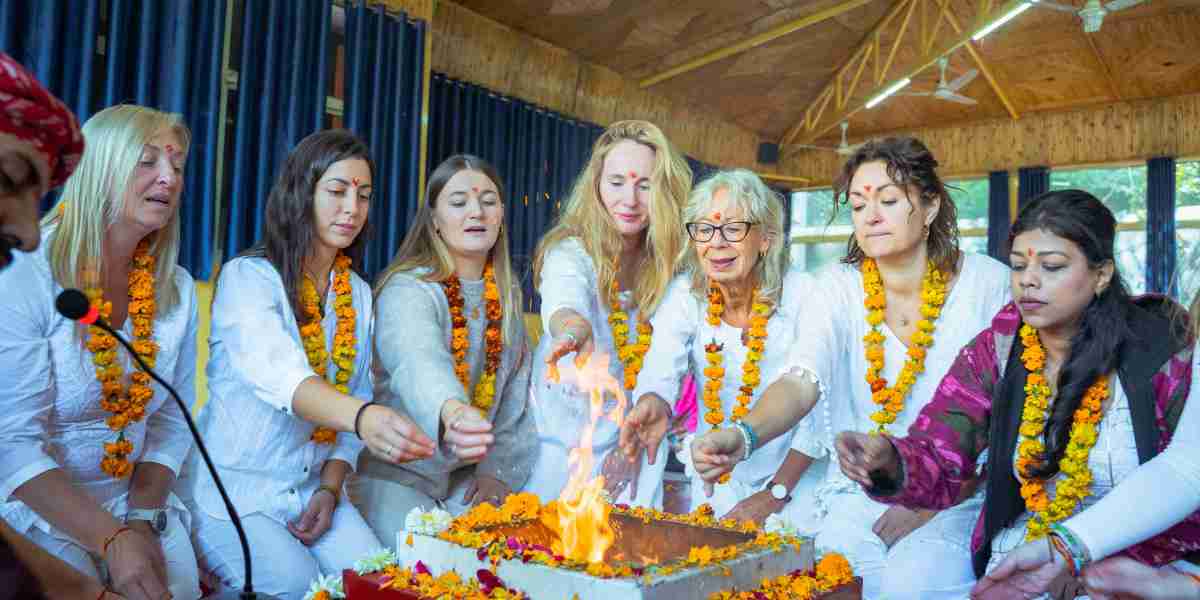Now, most of you know about yoga, and some of you even practice it. But, what you do is mostly related to the physical aspects. If you decide to go to the Yoga School in Bali, you will come to know that yoga goes deeper. There are many allied sciences that are a part of yoga. If you go by their definitions, Ayurveda is the science of life. And, yoga is its application in our daily lives. The former originated from Atharva Veda, whereas the latter has its origins in Yajur Veda.
If you follow the principles of Ayurveda, and apply them in your daily life, along with yoga practice, you can reap huge benefits. Moreover, if you join the Yoga Teacher Training in Bali, you can gain a lot in terms of benefits.
Let us find out the joint efforts of Yoga and Ayurveda, which have lasting implications on our body and mind.
Decoding Ayurveda For You In Yogic Light
Ayurveda is basically a health philosophy. It states that every individual has a unique body constitution. It affects how you walk, behave and feel. This constitution is called Dosha. The various doshas are Vata, Pitta, and Kapha. If someone told you that, you are governed by only one of these, that person is completely wrong. Every person has all three doshas in various percentages.
By following the principles of Ayurveda, you can bring about a balance in all three. Here are a few snippets about the three doshas.
- Vata – Those who are driven by Vata, are quick thinking individuals, and like to be on the move. Such individuals are extremely creative. If you ever find out that Vata is in imbalance, then you should go for slow, balancing postures in yoga, like Tadasana. You can also engage yourself in spinal twists and inversions. Always practice deep breathing, if you want to get your balance back. The Yoga Teacher Training in Bali revolves around such aspects. You will be studying yoga and Ayurveda in conjunction with one another. Moreover, you will lead a Sattvic lifestyle, eating fresh fruits according to your dosha. Furthermore, you will be able to enjoy balance.
- Pitta – If you are dominated by Pitta, you will be ambitious, passionate and full of life. On the downside, you may be governed by anger and inflammations. You must engage in cooling and relaxing postures, to release the heat. Try forward-bending postures, and postures that open up the heart region. Dhanurasana and Ushtrasana are the ones that you can try. These practices will encourage you to be more compassionate and patient.
- Kapha – At the Yoga School in Bali, you will be able to practice the way you are supposed to. Those who are governed by a strong Kapha, can be procrastinating. Such people often experience congestion. In such cases, you can go for stimulating asana practices like Sun salutations and breathing exercises. These will help in the proper circulation of the Prana. You can engage yourself in twists.
In the context of Ayurveda and Yoga, you must ensure to keep these in mind. Get the complete knowledge of these aspects as a part of the course at the Yoga School in Bali.
Ayurvedic Routines And Practices
Yoga practitioners and students will learn about various Ayurvedic practices, which they can practice along with yoga.
- Abhyanga – It is an Ayurvedic massage, which helps to remove the toxins from the body. Moreover, it also relaxes the muscles. If you do not have some basic knowledge of Ayurveda, hatha yoga practice will not yield results. Yoga practice can aid you, by cleaning the nadis and chakras. When you practice yoga, some of the toxins are dislodged from their original location. However, they remain in the bloodstream. When you apply the massage with medicated oils, the toxins are carried away towards the exit points or excretory system.
- Basti – This is another Ayurvedic routine, which you can practice. It helps in cleaning the anus and intestines, of dirt and toxins. But, in order to do it, you must learn it properly. You can learn it as a part of Ayurveda and Hatha Yoga Shatkarma Kriyas, in the Yoga Teacher Training in Bali. You can either practice Basti with oils, or medicated decoctions.
- Nasya – It is the cleaning of the nose channels along with the throat. You can use medicated oils, to do this. This also opens up the respiratory channels of the body. So, you can take in more oxygen during your yoga practice.
You can master the above practices, in conjunction with yoga asanas and Pranayama. The course teaches you about all these aspects in great detail. Bali Yoga Retreats, is one of the best schools in Bali, where you will learn about internal as well as external yogic practices.
Asana Practice And Pranayama
As a part of the course, you will learn about Hatha Yoga asanas and Ashtanga-Vinyasa asanas. The course is designed keeping in mind, the various applications in daily life. You also get to learn about the alignments and modifications. The course is one of the best for you, if you want to adopt a holistic lifestyle. Additionally, you will also get a certification, after you complete the course.
Yoga Alliance is the certifying body, which facilitates your growth in yoga. Joining the school will bring about a massive change in your existence. That is why, you should ensure to enrol at a school that abides by the authentic yogic practices. You can also teach others in future, armed with a RYT 200, which is the basic qualification to enter the realm of yoga. The Yoga Teacher Training in Bali is a comprehensive and inclusive course, which will give you a new outlook. The certification also helps in differentiating you from the rest of the crowd. Joining the school in Bali, can be a life-changing event for you. The school gives adequate attention to the mind-body connection, which is very crucial in this sphere. So, join the course now!








